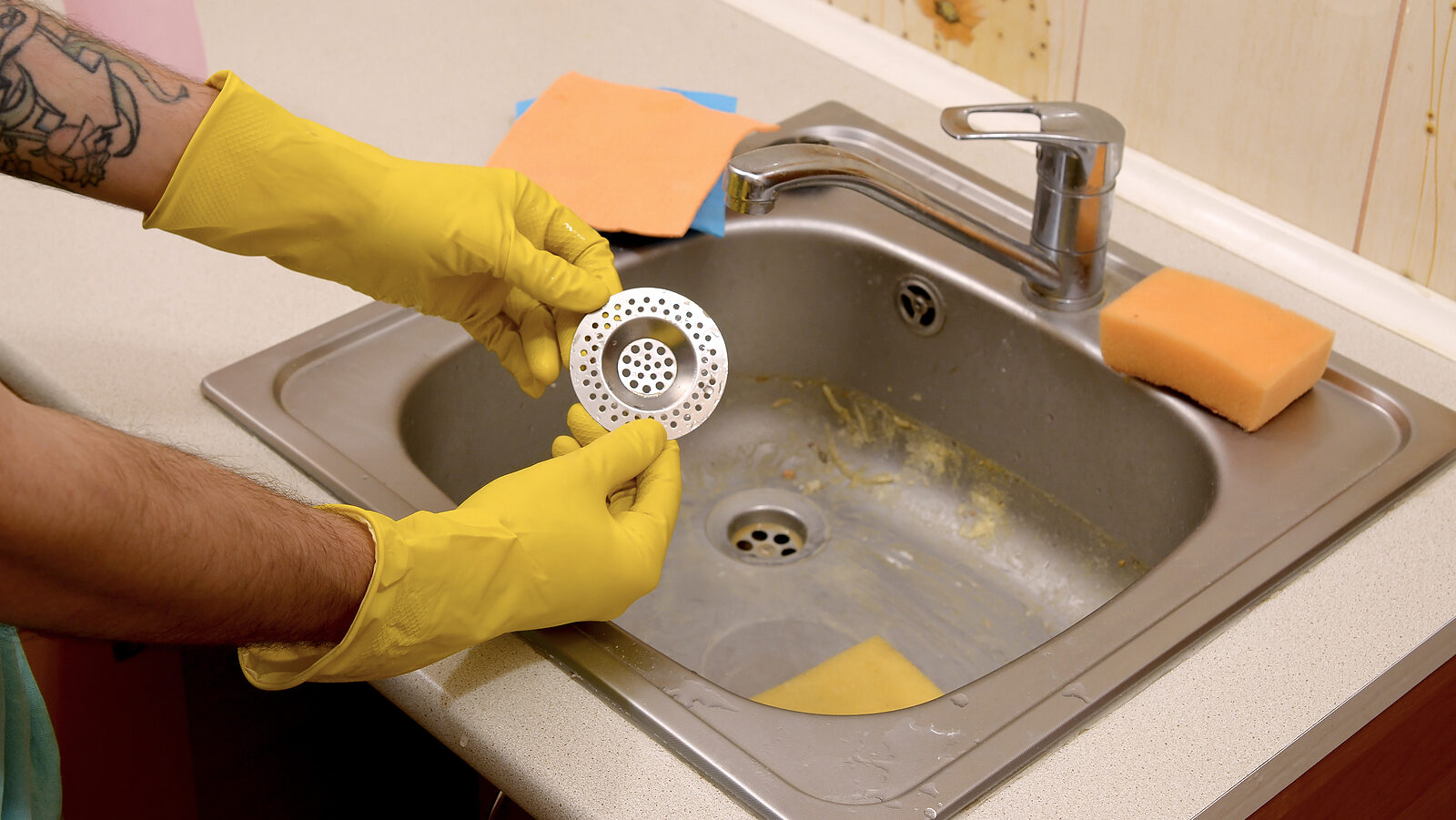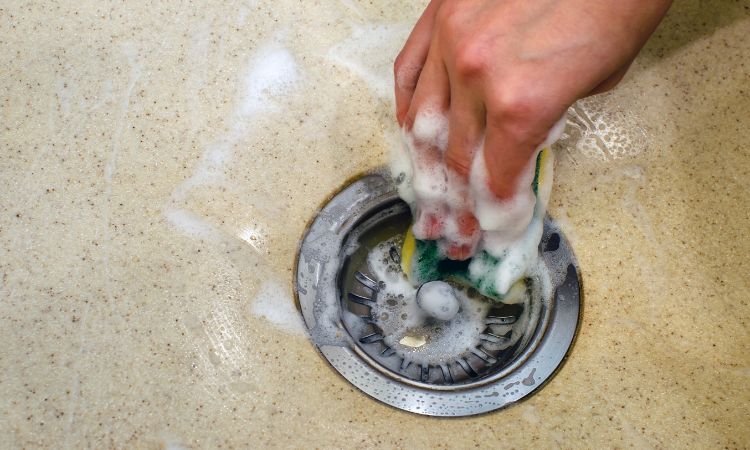Here further down you will discover lots of exceptional answers relating to Solved! How to Fix a Slow Sink Drain.

Introduction
We have actually all been there: You're brushing your teeth or cleaning your hands, and you observe the water merging in the sink. Instead of rapidly swirling down the tubes, it lingers, turning your once-refreshing morning routine right into a small swamp scene. A slow-draining sink isn't simply bothersome; it's usually a sign of bigger pipes concerns lurking under the surface area. The bright side is that a lot of slow-draining sinks can be taken care of with a little expertise, a few standard devices, and some perseverance. Ready to tackle this task head-on? Let's roll up our sleeves and dive right in.
Comprehending the Reasons For a Slow-Draining Sink
Before you begin poking around in your pipelines, it helps to recognize what might be causing the downturn. Recognizing the source makes it simpler to pick the ideal solution.
Common Offenders Behind Slow Drainage
So, what's blocking things up? Normally, it's a mix of day-to-day debris-- think hair, soap scum, toothpaste deposit, and leftover food particles. In time, these little bits build up and hold on to the pipeline walls, gradually narrowing the passage and making it harder for water to go through. Sometimes, natural resource from hard water can also include in the substance, creating the ideal storm for persistent blockages.
When is it Time to Take Action?
If you notice the water draining pipes slower than typical, it's a good idea to interfere faster as opposed to later on. Waiting too long might lead to complete clogs, unpleasant smells, or perhaps pipe damage. If the water takes greater than a few seconds to clear out after turning off the tap, consider it a warning and prepare to put on your DIY hat.
Devices and Materials You'll Need
The right devices make all the difference. Thankfully, you will not require a totally stocked plumbing professional's van to do the job.
Crucial Devices for DIY Repairs
A plunger is your best starting factor. A small, sink-sized bettor produces suction that can remove minor clogs. For even more persistent blockages, a drainpipe serpent (sometimes called a plumbing professional's auger) works wonders. A set of handwear covers, a flashlight, and possibly a set of protective goggles are additionally useful.
Suggested Cleaning Solutions
Moderate dish soap and warm water can aid break down greasy accumulation. A mixture of baking soft drink and vinegar is a reliable natural remedy, and enzymatic cleaners supply an even more green approach. Maintain chemical drain cleaners as a last resort, as they can be rough on your pipes.
Safety And Security First: Safety Measures and Preparations
Before you launch into unclogging setting, think about safety. You're handling possibly dirty water and particles, so slip on a set of handwear covers. If you're utilizing chemical cleaners, make certain the room is well-ventilated and comply with the directions on the label.
Protective Equipment and Work Area Configuration
Set some old towels or rags around the sink area to catch splashes. Eliminate any kind of items that may get in your means, like soap dispensers or tooth brush owners. See to it you have good illumination-- order a flashlight if needed.
Step-by-Step Guide to Dealing With a Slow-Draining Sink
Now, let's get involved in the nitty-gritty. This detailed procedure will assist you via simple methods to recover your sink's water drainage.
Step 1: Get Rid Of and Tidy the Stopper
Typically, the stopper (that little plug you lower to obstruct water) is the first offender. Remove it very carefully and clean off any type of hair or substance trapped around its base. Wash it completely before putting it back in position.
Action 2: Utilize a Plunger to Dislodge Particles
Got that plunger ready? Setting it over the drainpipe and provide it a couple of firm pumps. The concept is to develop suction that can loosen up any blockage. If you see bits of debris drifting up, you're on the right track.
Action 3: Try a Drainpipe Snake or Cord Hanger
If the bettor does not work, it's time to draw out the drainpipe serpent. Delicately feed it into the drainpipe and spin as you go. You could feel some resistance-- that's most likely the clog. Maintain turning and drawing until you eliminate the blockage. If you don't have a drain serpent, a straightened out wire wall mount can work in a pinch.
Tip 4: Use a Do It Yourself Drainpipe Cleanser
An all-natural cleaner made from baking soft drink and vinegar can break down residual crud. Pour half a cup of baking soft drink right into the drainpipe, followed by half a cup of vinegar. Allow it fizz for around 15 mins, then flush with hot water. This chemical reaction frequently does marvels for minor obstructions.
Tip 5: Reassemble and Examine the Sink
Placed every little thing back with each other and run the faucet. Does the water now swirl down the drain at a reputable rate? If yes, offer on your own a pat on the back. Otherwise, don't despair-- there are still a few even more tricks up your sleeve.
Different Methods for Stubborn Clogs
Not all obstructions are produced equal. If your sink still rejects to cooperate, take into consideration these alternate remedies.
Baking Soda and Vinegar Technique
We already discussed this, however it deserves noting once more. This mild, eco-friendly technique is more secure than chemical cleansers and usually rather efficient.
Chemical Drainpipe Cleaners
Enzyme-based cleaners use natural microorganisms to absorb organic matter. They're an exceptional option if you're seeking to stay clear of extreme chemicals. Simply remember, they might take a bit longer to function their magic.
Chemical Drain Cleaning Company: Benefits And Drawbacks
Chemical cleansers can blast with tough blockages quick, but they're not without downsides. They can create warmth and fumes, damages pipelines if utilized excessively, and pose environmental risks. Use them sparingly, and always comply with the directions very carefully.
Safety Nets to Keep Your Sink Flowing
Avoidance is the best treatment. By taking on a couple of easy habits, you can keep your sink from slowing down in the first place.
Regular Cleaning Behaviors
Wipe down the sink basin and fixture area routinely. Remove hair or food particles before they have an opportunity to wash down the drain.
Staying Clear Of Unsafe Compounds Down the Drain
Reconsider before discarding coffee grounds, grease, or coarse veggie scraps down the sink. These wrongdoers cling to pipe walls, producing clogs in time.
Regular Upkeep Checks
Schedule a fast month-to-month evaluation. Run hot water with the sink for a couple of mins, focusing on the flow. If it seems slow, act quickly before it comes to be a full-on blockage.
When to Call a Professional Plumbing Technician
In some cases, regardless of just how hard you attempt, that obstruct simply will not budge. That's when it's time to bring in the pros.
Signs That Indicate an Extra Significant Problem
If your sink drains slowly regardless of several attempts, or if you discover water supporting in various other components (like your shower or bathroom), you may have a much more serious plumbing problem lurking deeper in the system.
Stabilizing Do It Yourself Efforts with Expert Assistance
While DIY can save you money and use a feeling of success, there's no shame in calling a specialist. An expert plumber can examine your entire pipes arrangement, ensuring there's no underlying damages or long-lasting problem that can cost you extra in the future.
Contrasting Prices and Long-Term Solutions
Prior to making a decision, take into consideration the big picture. An inexpensive, quick fix might resolve the problem momentarily, however investing in an extra long-term solution could save you money and tension in the future.
Weighing the Costs of Do It Yourself vs. Specialist Fixes
DIY repairs usually set you back little greater than the cost of a bettor or a container of baking soda. Expert services, on the other hand, come with a price but might stop repetitive problems and costly repair work later on.
Purchasing High Quality Fixtures and Upgrades
If your sink's layout contributes to constant obstructions, it might be worth upgrading to higher-quality fixtures or changing the plumbing design. Consider this a financial investment in your house's performance and convenience.
Final thought
A slow-draining sink can feel like a minor irritation, but it's typically an indicator that your pipes needs a little tender loving care. By understanding the root causes, utilizing the right tools and strategies, and devoting to basic preventive measures, you can maintain your sink streaming freely. And when all else fails, never be reluctant to contact a specialist-- your home's pipes deserves the financial investment in treatment and upkeep.
Three Common Ways to Fix a Slow Drain
Baking Soda Method
Boil a full pot of water. Measure out cup of baking soda and pour it down the drain. Then take cup of the magical cleansing substance known as white vinegar and drop that down there too. Allow the mixture to fizz in the drain for five minutes as the vinegar and baking soda combine. Now dump in that whole pot of boiling water. This combination of cleaning substances should clear out anything that is causing your sink to drain slowly. If it doesn t...
Zip-It
If the baking soda method doesn t clear out your drain, it may be because a significant amount of hair and/or other debris has collected there and you need to remove it. Purchase a Zip-It tool at any home improvement or hardware store and insert it into your drain. It will catch any collected hair or debris that s blocking the flow of water. Pull it out. If it s got a big clump of hair, etc. on the end, you ve probably got your culprit.
Drain Cleaner
If these methods don t work, there is the standard drain cleaner that you can also buy in a hardware store or even your local grocery store. It s better if you can use a household solution, but these drain cleaners often work in a pinch. They re very simple to use. You generally just dump them in your drain and wait. If even this method is not effective, it may be time to call the plumber.
https://www.mrrooter.com/oneida/about-us/blog/2017/july/three-common-ways-to-fix-a-slow-drain/

Do you like reading about Solved! How to Fix a Slow Sink Drain? Create feedback further down. We would be pleased to know your reactions about this article. In hopes that you come back again later on. Don't hesitate to take the opportunity to distribute this blog posting if you enjoyed it. Kudos for being here. Don't hesitate to visit our site back soon.
Schedule Estimate